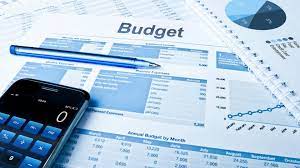Budget creation is key to your overall success and security in a business. It enables you to monitor and more clearly comprehend whether your company generates enough revenue to cover its costs or not. Building better financial decisions with the help of a budget is essential for your business. Budgeting is a continuous process rather than a one-time exercise because your company’s revenue and expenses can change at any time. Keep your budget up-to-date every three months, or whenever there are significant changes to your company, like substantial expenses. That will assist you in continuing to work toward your objectives.
Budgeting helps you to set both immediate and long-term objectives for your business. You can monitor sales, costs, and cash flow. Also, you can reduce expenditures to prevent overspending and brace yourself for peak times and lows in your business. Keeping a record of your finances is just an initial step while making your budget.
While budgeting for your business, you should consider three components: revenue, expenses, and profit. Before we get down to crucial budgeting steps, we must know what those three key elements mean. The precise sum of money earned through business operations, including product sales, investments, savings account interest, dividends, and other sources, is counted as a business’s revenues. All expenses related to operating a business can be divided into two categories: Fixed costs, such as rent, salaries, insurance, and accounting services, are costs that are constant from month to month. Flexible costs vary monthly, such as transportation and product or service costs. The profit of a business is the balance remaining after deducting expenses from revenues.
Now, let us discuss the effective way of budgeting you can create for your business. First, add up all your revenue sources over 12 months, forecast your expenses, calculate your profit to create a successful budget, and review your spending plan regularly by keeping a monthly journal. It would be best to first calculate your monthly income by listing sales, investments, and other sources of income before you create a budget. Calculate your expenditures/expenses. The best way to do this is to keep track of your monthly expenses. Decide which expenses are flexible and which are fixed. Then deduction of the total estimated expense from the total revenue can show you how much money you might be making. If the sum is positive, we can say how much profit your business could be making. If the outcome is a negative figure, your expenses exceed your income. Either cut your costs, or your revenue must increase.
Finally, you must set a foolproof budget that you can implement in your business effortlessly. Ensure that you are meeting your objectives; keeping track of your income and outlays is crucial. You can also seek assistance from a budget app if you find it challenging to keep track of your finances. Remember that finding the right balance takes time, so if you find it challenging to stick to the budget you have created, then the budget app will make it easier for you to generate a budget for your business.
